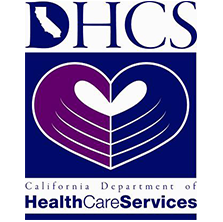There are certain qualities we possess in life that we cannot see in ourselves but others can see so clearly. That same philosophy can be attributed to those suffering from addictions to drugs or alcohol. From an outsider looking in, it may seem so clear and obvious that someone has a problem; however, a lot of the time addicts are unable to see it for themselves. Furthermore, addicts may actually be able to see it, but they do not want to. This is called denial.
What Are the Signs of Addiction?
Addiction is a chronic relapsing disease that affects parts of the human brain that are responsible for reward, motivation, and memory. When someone is addicted to drugs, prescription medication, alcohol, or any harmful substance, it affects the brain and causes cravings and compulsive, uncontrollable behaviors to occur.
Someone who is experiencing addiction may be unable to stay away from the addictive substance or behavior, display a lack of control over their actions, lack emotional responses, and exhibit physical symptoms such as sudden weight loss or weight fluctuation, dilated pupils or red, swollen eyes, twitching, sweating, itching, poor hygiene, and skin problems.
Most signs of addiction stem from a person’s hindered ability to exhibit control over their actions. This can include changes that are related to their personality, changes in their social lives, behavioral changes, insomnia, or memory loss. Other signs and symptoms of addiction include poor judgement, unrealistic mentality on how drugs or alcohol can affect you, placing blame on others, increased levels of anxiety or depression, detachment from friends and family, missing deadlines, skipping work or school, isolation, or hanging around a bad crowd of people.
Signs of an Addict in Denial
Denial plays a pivotal role in addiction and recovery. It is often the fundamental roadblock preventing awareness and acknowledgement of the issue.
A common phrase that’s used with addiction is ‘the first step to recovery is admitting you have a problem.’ It is extremely common for people suffering from an addiction to be in denial about their problem. Denial comes into play in a number of ways, but a lot of the time people genuinely feel that they have control over their drug consumption.
Some common signs of denial include manipulation tactics (such as playing the victim or placing blame elsewhere), exhibiting uncharacteristic disregard for damaging behavior, exhibiting an accusatory or defensive tone when confronted about the issue, justifying the addictive behavior, bracketing reality, and completely disassociating from their actions and not acknowledging that they are consuming harmful substances.
How To Get Your Loved One Help With Addiction Treatment Today
When a loved one is exhibiting symptoms of addiction, it is important to have a plan in place for confronting them about it. A lot of the time, you may be met with denial. In preparation for this conversation, it is important to consider the potential that your loved one might not behave as you are used to them behaving. Drug and alcohol abuse changes chemical components of the human brain, and those under the influence may have no control over the behaviors they exhibit when they are using.
It is important that when you approach your loved one, they are not under the influence and they are in a safe setting. The first step to recovery is to get your loved one to a place where they are out of denial and they could admit that they have a problem.
To help your loved one recover from their addiction, please visit Safe Harbor today. Our goal is to help our patients rebuild themselves as a whole through mind, body, and spirit. Admitting you have a problem is the first step, and we take it from there.




